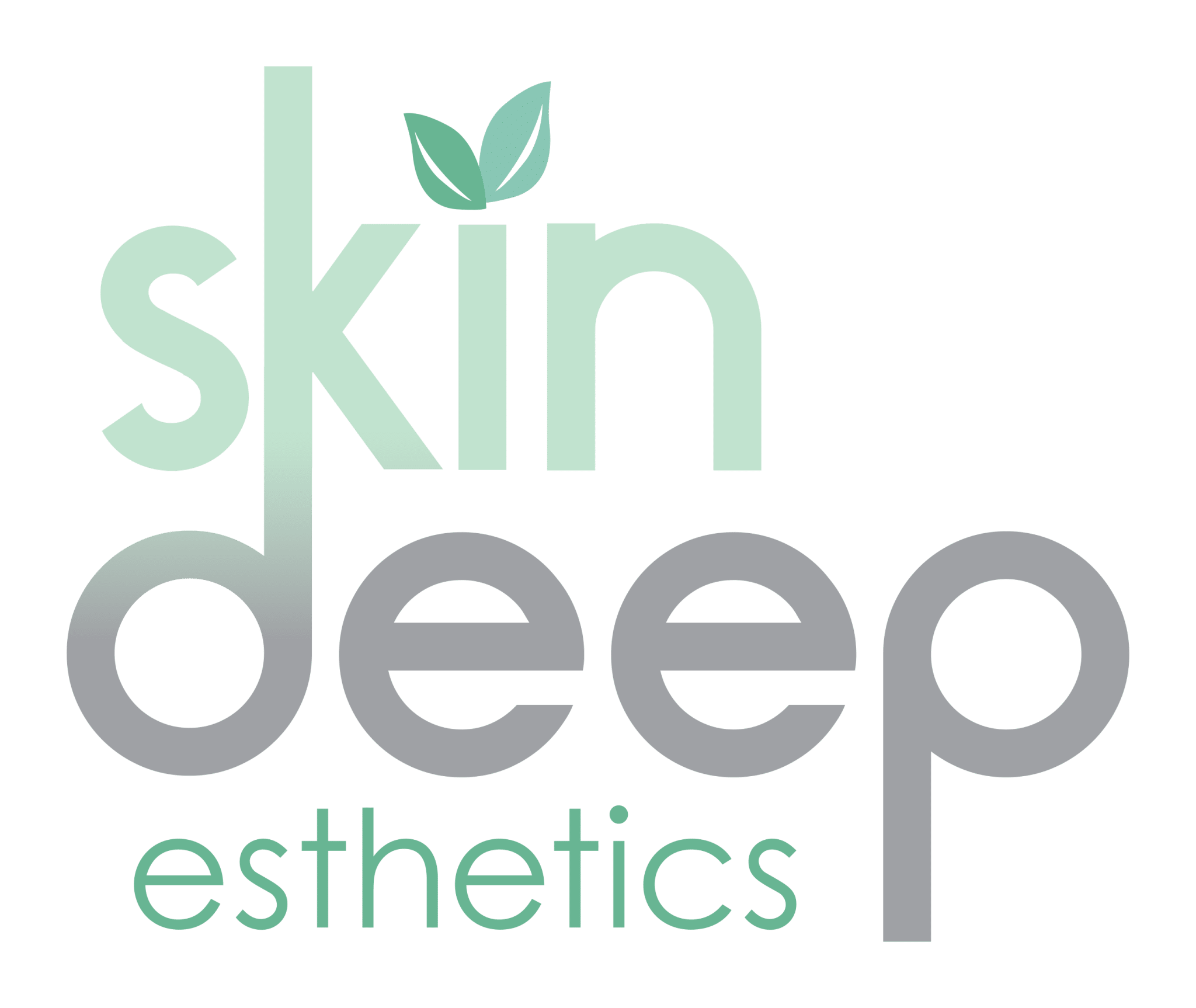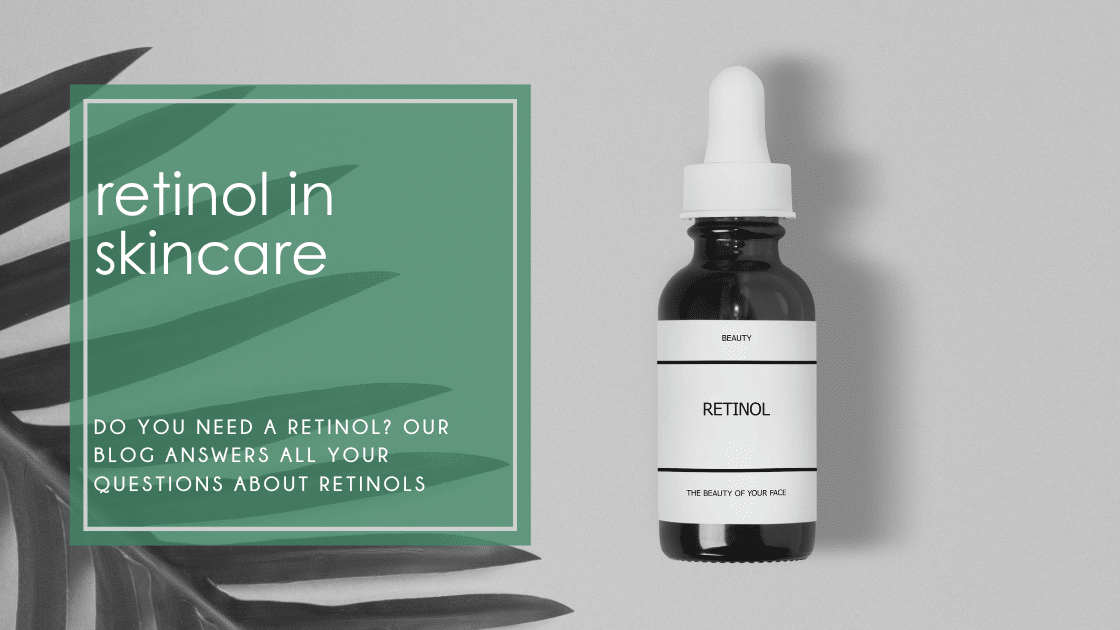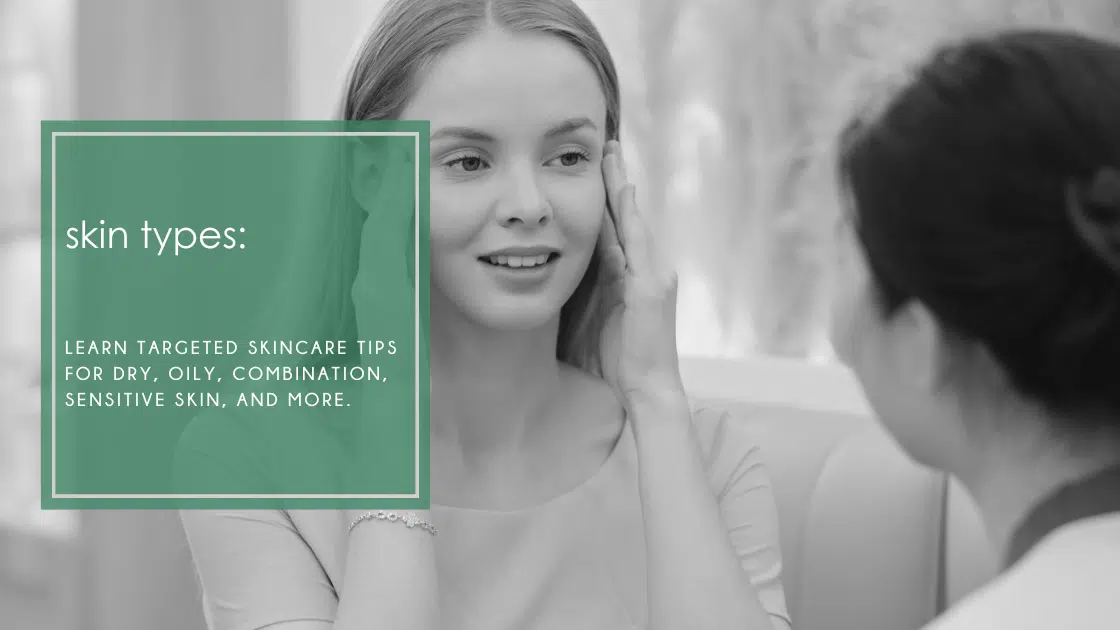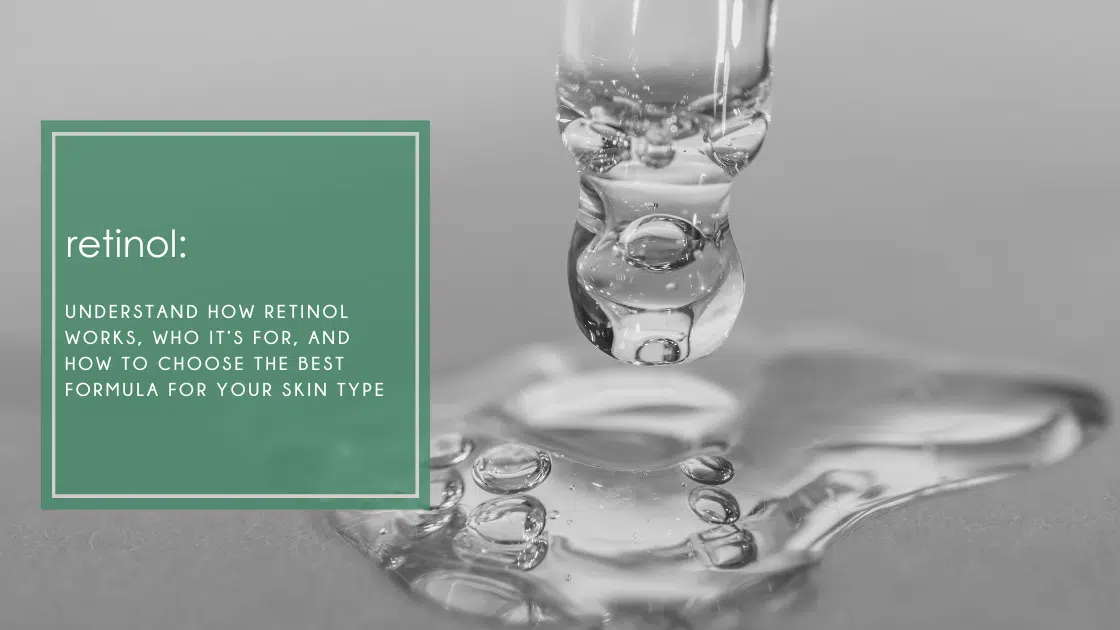Retinol: Everything You Need To Know
Retinol is everywhere! Whether you scroll through Instagram or chat with a friend, chances are someone is telling you, “You need retinol!” Is it really for everyone? One of the top questions asked at Skin Deep Esthetics is, “Do I need a Retinol?” Let’s dive deep into everything retinol. This incredible ingredient IS a game-changer for your skincare routine.
Today we answer your questions such as, ‘What retinol is’, ‘How to use it’, ‘When to use it’, and why our favorite product, Retinal Advanced, is a must-have in your skincare routine.
What is Retinol?
Retinol is a form of Vitamin A used in skincare to treat the skin for aging, acne, and scarring. Think of Retinol as your skincare Personal Trainer! Estheticians and dermatologists love this incredible ingredient because it stimulates fibroblast cells. Fibroblast cells are the key to collagen production and the primary component of connective tissue. As we age, Fibroblast cells weaken and begin to break down (thanks to aging and sun damage) thus collagen production slows down, causing wrinkles and loss of elasticity. This process contributes to thin skin post-menopause.
As we age, collagen production reduces by 1% a year. Adding retinol into your skincare routine will keep the collagen strong, and slow down signs of aging. Retinol strengthens Fibroblast cells to keep connective tissue strong and collagen to keep producing.
Where Does Retinol Come From?
Retinol was discovered in 1909 and has been used in skincare products since 1984, is a derivative of Vitamin A, an important vitamin for our body. We need to consume Vitamin A on the inside, plus apply our retinol on the outside for ideal results. We can get Vitamin A from eating beef, chicken liver, eggs, and fish. Regularly consuming Vitamin A plus using a topical Retinol will slow down the aging process and maintain your results.
Retinol vs. Tretinoin
Not all retinol is created equal, there are many variations. Tretinoin is one of the most common names and the most studied. Studies done in the 1980s and 1990s prove that Tretinoin used at low percentages helps with photoaging (sun-damaged skin) and increases collagen thickness to help fight wrinkles. The link to that study and information regarding Reintol, Tretinoin, and other variations can be found by clicking the link here.
Also known as a Retinoid its variations, such as Retinyl Esthers, Retinaldehyde, and Retinoic Acid are all categorized under the same name when formulating and for marketing purposes. However, these variations act differently in the skin so you need to know which is best for your skin. The important thing is that Retinyl Palmitate and other forms of Vitamin A are less effective than Tretinoin and Retinaldehyde. The body converts both into Retinoic Acid. Our body utilizes Retinoic Acid to stimulate Fibroblast cells.
Not all retinol is created equal! Consumers buy based on the label stating it helps with wrinkles. Most over-the-counter products contain variations such as Retinyl Palmitate, Retinyl Acetate, and Retinyl Linoleate.
Is Retinol Bad?
Retinol isn’t bad, however, when used incorrectly or not understanding the side effects, retinol gets a bad rap. Side effects happen with improper use or using a prescription strength. As estheticians, we suggest easing your skin into Retinol, because you don’t want to overstimulate the skin or create irritation.
Another important thing to note is that ALL Retinols cause sun sensitivity. If you are in the sun or traveling, stop using retinol because it will damage your skin! SPF is a MUST!
Who Can Benefit?
Anyone concerned with wrinkles, sun-damaged skin, acne, and acne scarring.
At What Age Should I Start Using Retinol?
Most skin experts tell you to start Retinol in your 20s to “prevent aging”. Again you don’t want to overdo it. While you may think that starting young is key to having great skin, you have plenty of collagen. There is no need to stimulate your fibroblast cells before they break down.
Many factors come into play with aging, especially now as our foods are overprocessed, our diets and lifestyles are unhealthy, and more pollution in our air than ever before. All these lifestyle factors lead to accelerated aging! Our recommendation for beginning retinol is around age 35 when the signs of aging begin. Remember more is not better when it comes to our skin!
What Are The Side Effects?
When used incorrectly, side effects include dry skin, flaking, burning, redness, and irritated skin. Retinol increases skin sensitivity and sun sensitivity, so wearing an SPF is a MUST! When we start our clients out on Retinol, we have them add it in 2x a week for about 3-4 weeks. We then check in to see how their skin is doing. We will increase to 3x a week. We gradually increase until you are using seven nights a week.
Why the slow increase?
We want you to have the best results possible. If you have never used retinol before, your skin may become irritated, dry, and flaky.Easing your skin into this process, will not give side effects.
What If My Skin Is Sensitive?
Yes, especially if you ease your skin into your retinol. Our recommendation for sensitive skin is to start 1-2 times a week for a month, each month you increase by 1 day until you are at 7 days of use.
Why Use Retinol At Night?
Retinol increases our skin’s risk of sun damage so we recommend using only at night so it is not freshly applied to the skin during the day. However, wearing a daily SPF is a MUST! We can’t stress this enough!! Another reason to use at night is our skin repairs itself while we sleep, especially if we get 6-8 hours of rest. You want to use reparative serums at night that can penetrate the skin as it repairs itself, maximizing Retinol’s efficacy.
Why Is Fall A Great Time To Start?
Fall is the perfect time to start retinol because we spend less time outdoors. This means less sun exposure. Starting Retinol in September will keep your skin fighting aging and sun damage during the fall, winter, and spring.
How Can Retinol Help Acne?
Retinol is great for acne, especially at low doses. Retinol helps prevent clogged pores, however, they penetrate the dermis, which means that the skin will go through a period of purging. During this purge period, which is about 4-6 weeks (or a full cell cycle), you will notice an increase in acne. After this purge period, your skin will begin to clear up. Retinols will help reduce post-acne redness and scarring.
Retinol is great for acne scarring because of its action against fibroblast cells. Damage to fibroblast cells is responsible for acne scarring. Pairing with peels and/or microneedling reduces deep acne scars.
Help With Dark Spots Or Sun Damage?
Retinol helps with both! The article talks about studies done to prove that retinol helps repair sun-damaged skin. Sun damage, also known as Photoaging, is the leading cause of premature aging. If you click here to read the article; look at the long-term study of Tretinoin to find that Retinol is “optimum for the treatment of photoaging”. We recommend adding into your skincare routine to help fight past sun damage.
What Retinol Should I Use?
As you can see, there are many forms of Retinol, some are better than others. The difference between prescription, professional, and over-the-counter is huge.
🌿 Prescription retinol prescribed by a dermatologist tends to have a higher percentage of retinol. However, that doesn’t mean you’ll get better results. It does mean you will have side effects and may not be happy with the initial outcome.
🌿 Professional retinol is ideal because estheticians can recommend an active percentage lower than prescription but higher than store-bought. Professional products use forms of Retinol that are effective on the skin.
🌿 Store-bought retinol tends to be a blend of Retinyl Palmitate, Retinyl Acetate, and Retinyl Linoleate which don’t work well. It will take quite a while to see results.
If you’re trying to save money, we recommend professional-grade, because you won’t need to use a lot of product, you’ll see results quickly, and no downtime from a prescription.
Check Out Our Favorite Product!
Our Retinal Advanced Serum is formulated with Retinaldehyde plus other superstar ingredients, such as Niacinamide, Bakuchiol, Vitamin C, and Melatonin to hydrate, soothe, and protect your skin without irritation. By combining vitamins, niacinamide, and bakuchiol, these ingredients work together to increase Retinaldehyde’s effectiveness:
💧 Niacinamide to restore hydration levels in the skin
🌿 Bakuchiol a plant-based retinol alternative used to increase retinol’s efficacy
🍊 Vitamin C increases the skin’s ability to repair sun damage
💤 Melatonin soothes inflammation and calms redness
Our clients saw over 40% reduction of wrinkles within just 3 months of using this serum!
Where In My Skincare Routine Should I Add Retinol?
Our Retinal Advanced Serum is intended as a once-a-night serum. However, if you’re feeling dry, layer the Hyaluronic Concentrate serum on top of the Retinal Advanced for extra hydration.
Questions?
If you have questions about how to start on a Retinol or want personalized advice? Drop them in the comments below – we’re happy to help!
Thanks for reading and we will see you next week with another blog!




